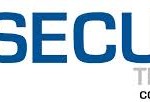
Miguel Saucedo and his family have paid thousands of dollars to Securus to talk to his brother who is incarcerated.
Miguel Saucedo grew up in the Latino neighborhood of Little Village in Chicago. Now almost 30, Miguel recalls as an eight year old taking a five-hour drive to visit his older brother who was incarcerated downstate at Menard Correctional Center. His family would load into a rented van for a day-long trip through long stretches of cornfields and arrive at a high security fortress in the town of Chester, which bills itself as the “Home of Popeye the Sailor Man.” Miguel recalls those journeys as a traumatic experience, at times being pulled over by local police and harassed along the way.
Over the years, the expense and inconvenience of the visits has often meant they have relied on the phone to communicate with his brother. Miguel guesses his family has spent an average of about $100 a month on prison phone charges over the two decades his brother has been locked up. Miguel did a quick calculation of the total for these bills, “Can we just round it out and say it’s twenty thousand dollars?” Currently this money goes to Securus Technologies, which has an exclusive phone contract with the Illinois Department of Corrections. Miguel identified Securus as “just another key player in this system of the prison industrial complex.”
Based outside of Dallas, Texas, Securus is a leading force in a billion dollar prison phone industry. The company has amassed a fortune by charging families like the Saucedos about four dollars for a 15-minute phone call. But it doesn’t stop there. Securus has become a new corporate species: a carceral conglomerate. Quickly swallowing up smaller companies and buying out its competitors, Securus owns an entire supply chain of existing and emerging prison technologies. They stand at the cutting edge of video visitation, electronic monitoring, and prison surveillance systems, constantly finding new products and markets across the landscape of mass incarceration. In turn, the company’s profitability has made it a target for high finance corporations specializing in takeovers.
The Roots of a Carceral Conglomerate
 Securus’s origins go back to the mid-1980s when President Ronald Reagan was launching the “War on Drugs.” In 1986, a Colorado-based company called “Tele-Matic” was formed. In 1995, the company changed its name to T-Netix, rapidly winning contracts for many large prisons. In 1999, they bought out their main competitor, making T-Netix the biggest “inmate calling services” provider at the time.
Securus’s origins go back to the mid-1980s when President Ronald Reagan was launching the “War on Drugs.” In 1986, a Colorado-based company called “Tele-Matic” was formed. In 1995, the company changed its name to T-Netix, rapidly winning contracts for many large prisons. In 1999, they bought out their main competitor, making T-Netix the biggest “inmate calling services” provider at the time.
H.I.G. Capital, a global investment firm headquartered in Miami, Florida, purchased T-Netix in 2004 for $70 million. That year H.I.G also bought Evercom, T-Netix’s main competitor. H.I.G. merged the two and formed today’s Securus. The dual acquisition was a “solid investment” according to H.I.G.’s Lewis Schoenwetter, and would be “an engine of growth for the future.”
Securus’s stock has proven virtually recession proof. In 2011, the investment firm Castle Harlan added Securus to its portfolio for an estimated $440 million. In 2013, Securus was bought by another big investment company, Abry Partners, who paid a reported $640 million for the company. According to Securus President Richard A. Smith, the company saw record revenue highs in 2013.
Securus Monopoly in Illinois
Securus’s operations in the state of Illinois provide an excellent example of how the company uses its monopoly to leverage profitable phone contracts. Phone contracts are won by companies offering large “site commissions” or “kickbacks” to cash-strapped state and county governments. A percentage of income collected from phone calls goes back to the authorities for the exclusive right to extract money from a captive population.
The kickback has been crucial to Securus gaining its foothold in Illinois. Using the millions of dollars in their coffers, Securus significantly outbid the previous provider to win the contract with the IDOC by offering one of the highest kickbacks in the country. About three out of four dollars paid for a phone call by Miguel Saucedo’s family actually go back to the state of Illinois. In 2012, nearly $12 million in kickbacks was awarded to the IDOC thanks to the high commission rate offered by Securus.
However, Securus’s carceral presence in Illinois is not limited to prisons. They have contracts with nearly 80 percent of county jails as well. This includes the lucrative contract with Chicago’s Cook County, one of the nation’s largest jails.
Campaign for Prison Phone Justice
A national campaign has come together to urge the Federal Communications Commission to regulate carceral phone rates. In February of 2014, the campaign scored its first major victory, when the FCC agreed to put a cap on interstate calls at $.25 a minute for collect calls, and $.21 a minute for debit and pre-paid calls.
Recently, UC-IMC’s own Illinois Campaign for Prison Phone Justice joined in the campaign. The FCC is currently considering lowering intrastate calls, a decision that could impact the cost of some 85% of all phone calls made from inside prisons and jails.
Securus CEO Richard Smith, whose annual salary package comes to over $1 million, responded to this process by claiming that regulation of rates could present a security issue that could lead to “the deaths of inmates, witnesses, friends/family members of victims, and of officers that protect us.”
Secure-Us
While Securus is feeling the heat in their phone business they are moving into new sectors to secure their profits. Their most lucrative investment appears to be video visiting, a new technological frontier where the company already has a foothold. With access to a computer and high speed internet, video visits can be conducted from home.
According to a report compiled by the Prison Policy Initiative, Securus not only stands at the cutting edge of this market, but is also implementing the most draconian contractual terms. Key to this has been their insistence that county jails which implement video visiting must eliminate options for face-to-face visits. The report notes that Securus is the only firm pushing such a policy. Plus, Securus has by far the highest rates for video visiting, reaching as high as $1.50 a minute in some instances.
Electronic Monitoring
Securus has also gained a foothold in another carceral technology: electronic monitoring. In the last year and a half, Securus has acquired two firms which specialize in providing the GPS-linked ankle bracelets used for monitoring. In 2013 they bought up Satellite Tracking of People (STOP), which bills itself as the largest monitoring provider in the U.S. Then in 2014, they acquired General Security Services Corporation (GSSC) which offers monitors along with a range of other carceral technology.
At present the electronic monitoring sector pulls down an estimated annual revenue of $300 million. However, with increasing pressure to cut back on corrections costs, the use of ankle bracelets may escalate. This can provide a lucrative revenue stream, especially since in most instances the people wearing the bracelets have to pay a daily user fee ranging from $5 to $40.
While we often hear about the activities of private prison providers like Corrections Corporation of America (CCA) and the GEO Group, corporate interests are immersed in every aspect of criminal justice. Until carceral conglomerates like Securus are reigned in, poor families will continue to pay not only with the absence of their loved ones but to sustain the bottom lines for the benefit of investors and CEOs like Richard Smith.
Authors Brian Dolinar and James Kilgore are a part of the Illinois Campaign for Prison Phone Justice, a project of the Independent Media Center. This is an edited version of an article that originally appeared in Truthout (2/13/15).
